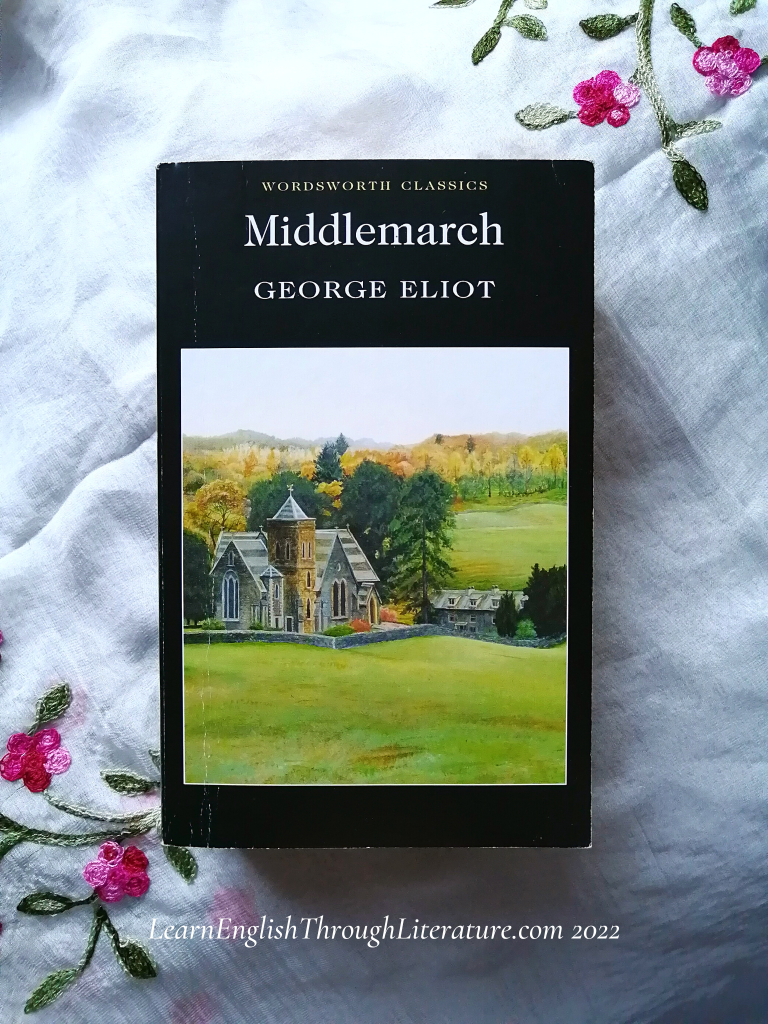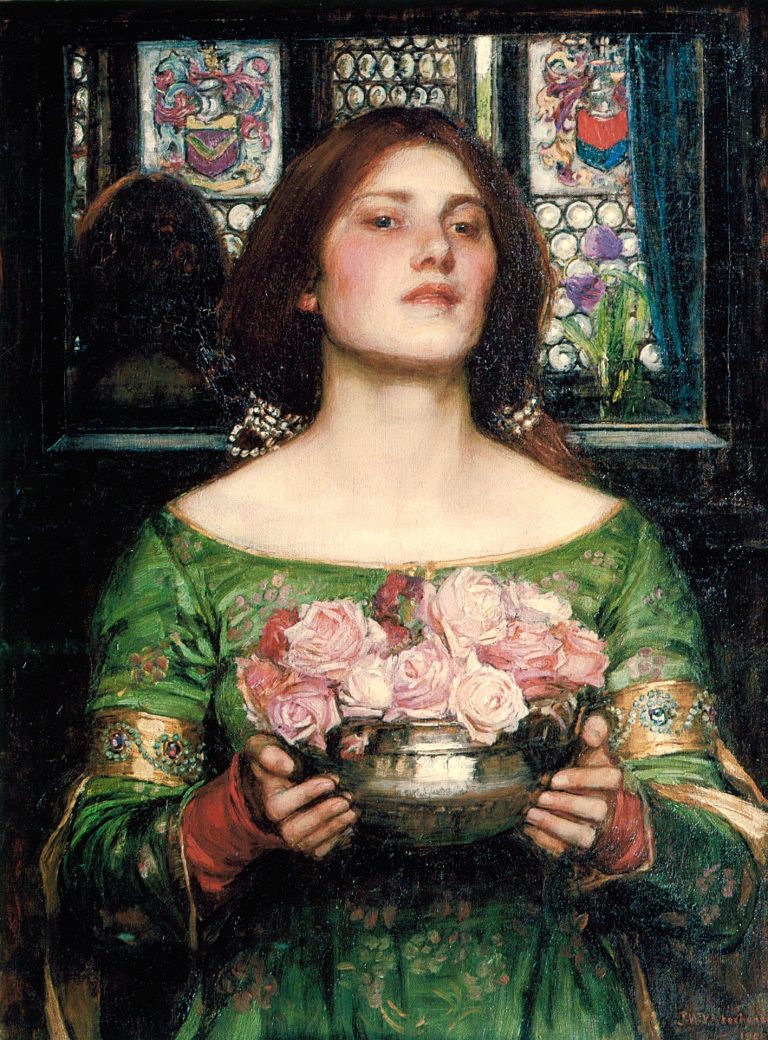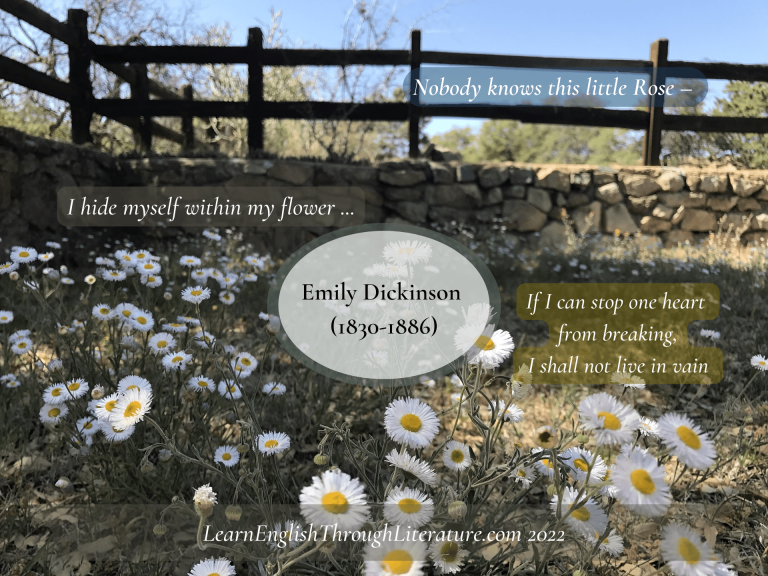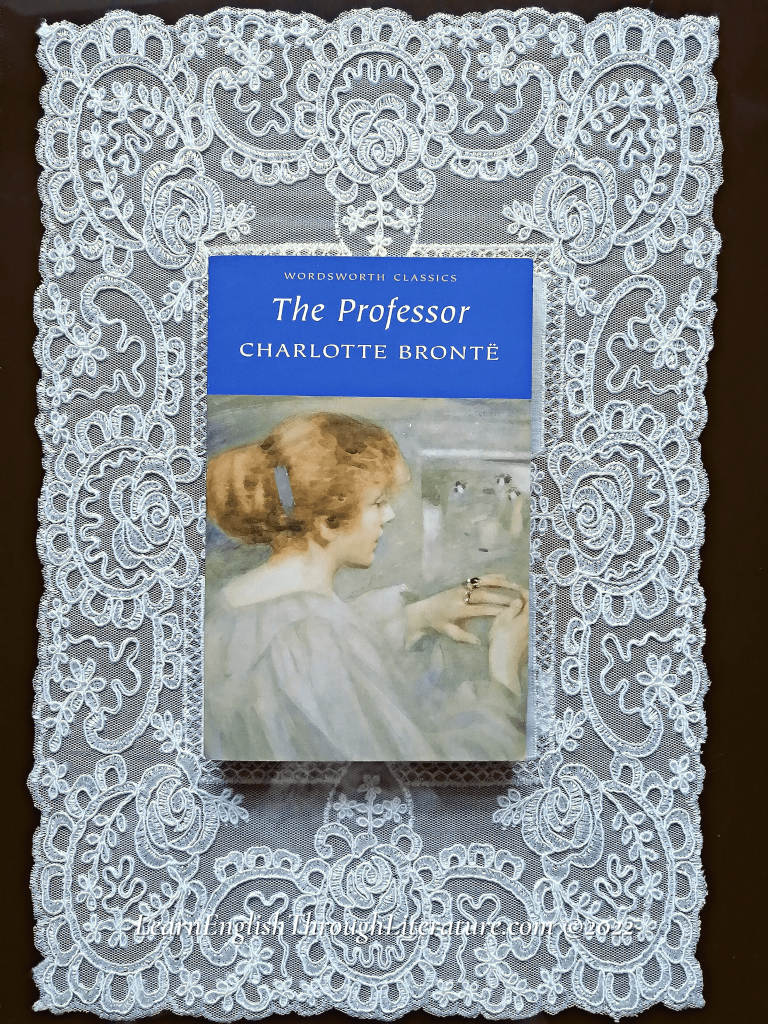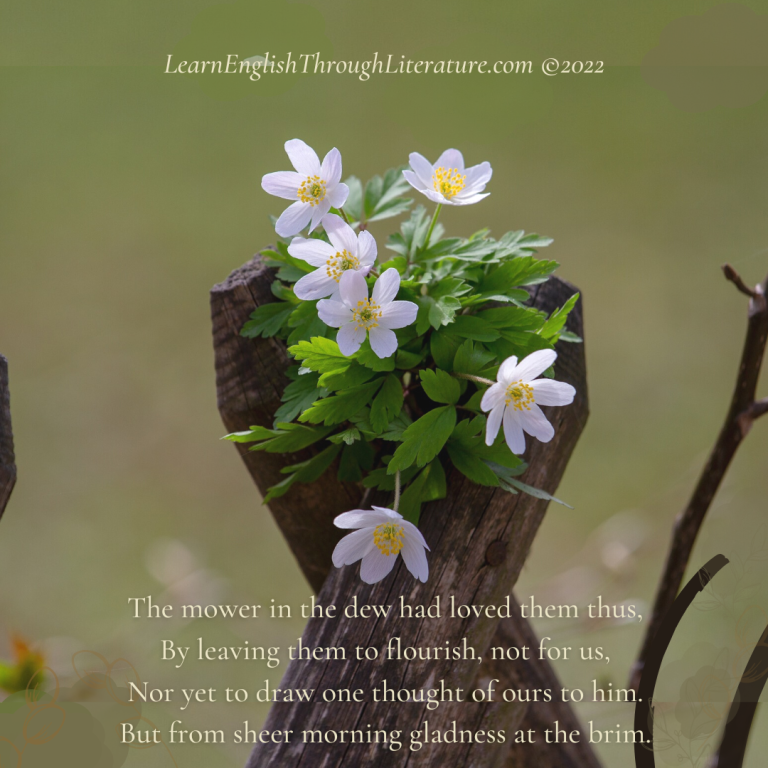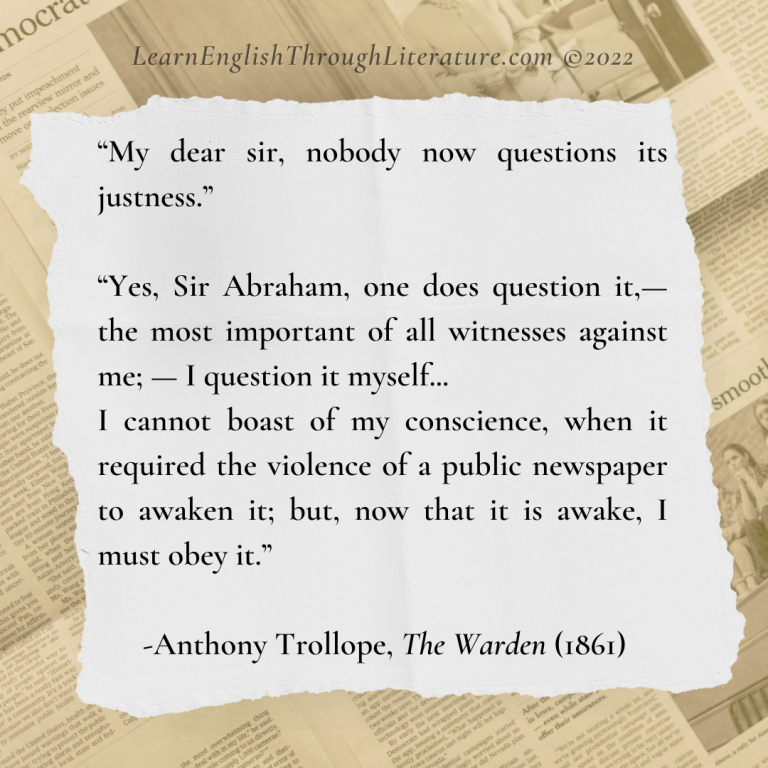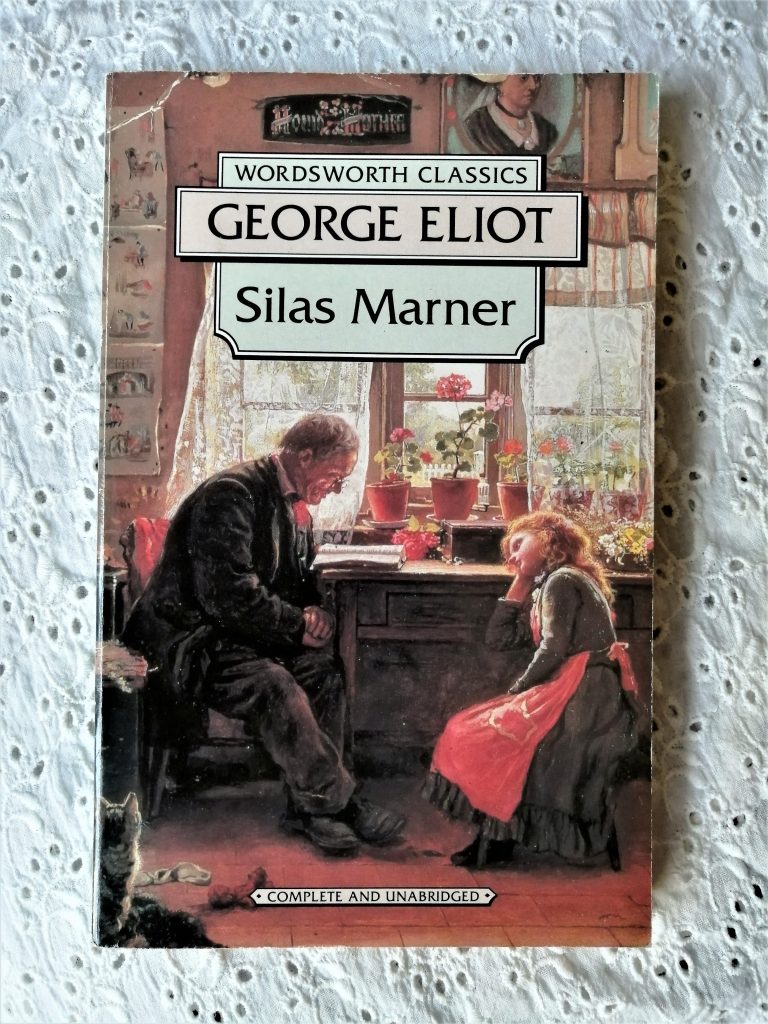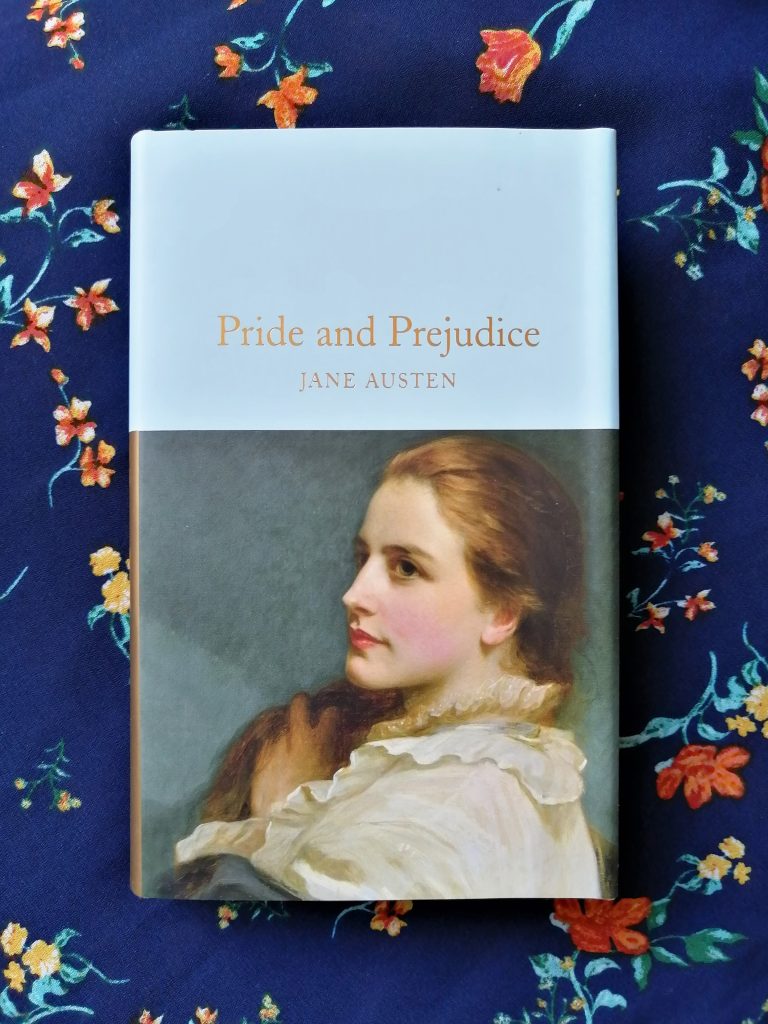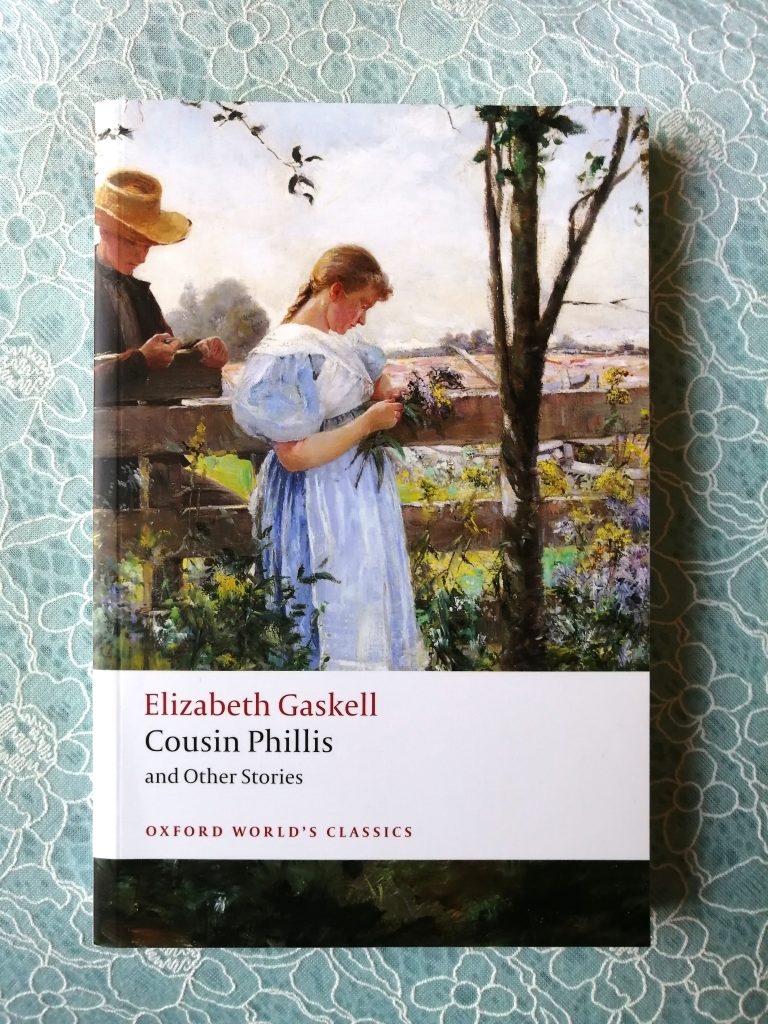On these beautiful long summer evenings, I often go for walks to admire the sunset. It is at these moments that I …
📕 ‘You have moral and literary tastes in common. You have both warm hearts and benevolent feelings; and, Fanny, who that heard …
📗 But the effect of her being on those around her was incalculably diffusive: for the growing good of the world is …
It goes without saying (it is obvious) today’s literary author is a well-known figure, someone whom you have undoubtedly heard of before: …
If you have been following my Short Lessons for a while, you might remember that every so often I like to return …
In light of the ongoing war and widespread migration of many people throughout Europe, many of us are reconsidering what languages we …
📘 “We got together in a few days a company of the toughest old salts imaginable – not pretty to look at, …
It has been quite a long time since we enjoyed a poem together. One that comes to mind from time to time, …
In light of the recent events that are taking place in Ukraine even as I write, I have been reflecting a lot …
Lesson #280: George Eliot’s Silas Marner and Some Tricky Prepositions of Time (‘in the’, ‘at’, ‘on’)
📙 The old man, contrary to expectation, seemed to be on the way to recovery, when one night Silas, sitting up by …
The book was interesting and it was old and it was long and it was a French book too. This is a …
Have you heard of negative prefixes in English before? 🧐 👩🏫 While the grammatical term is a bit of a mouthful, they …





